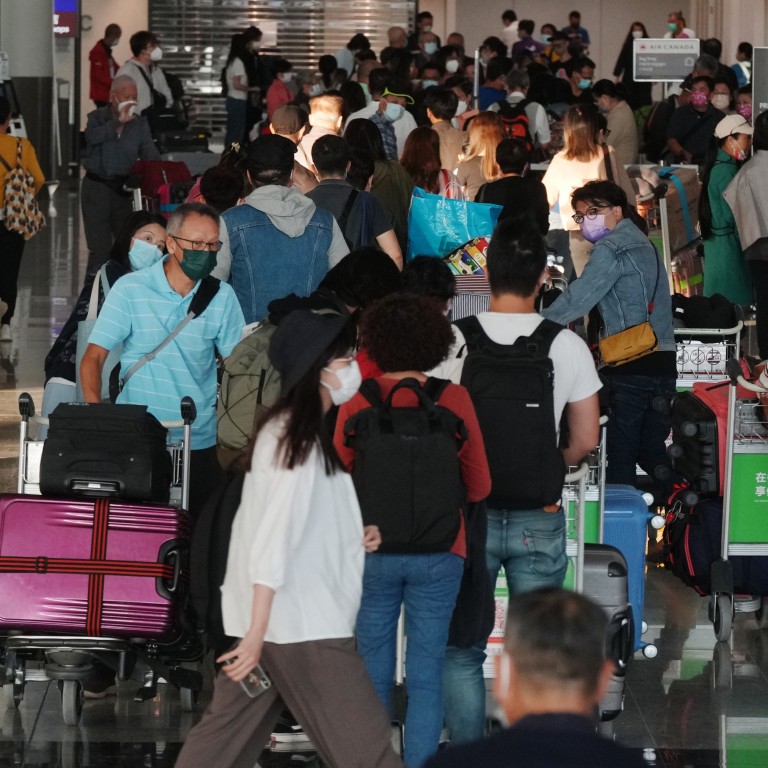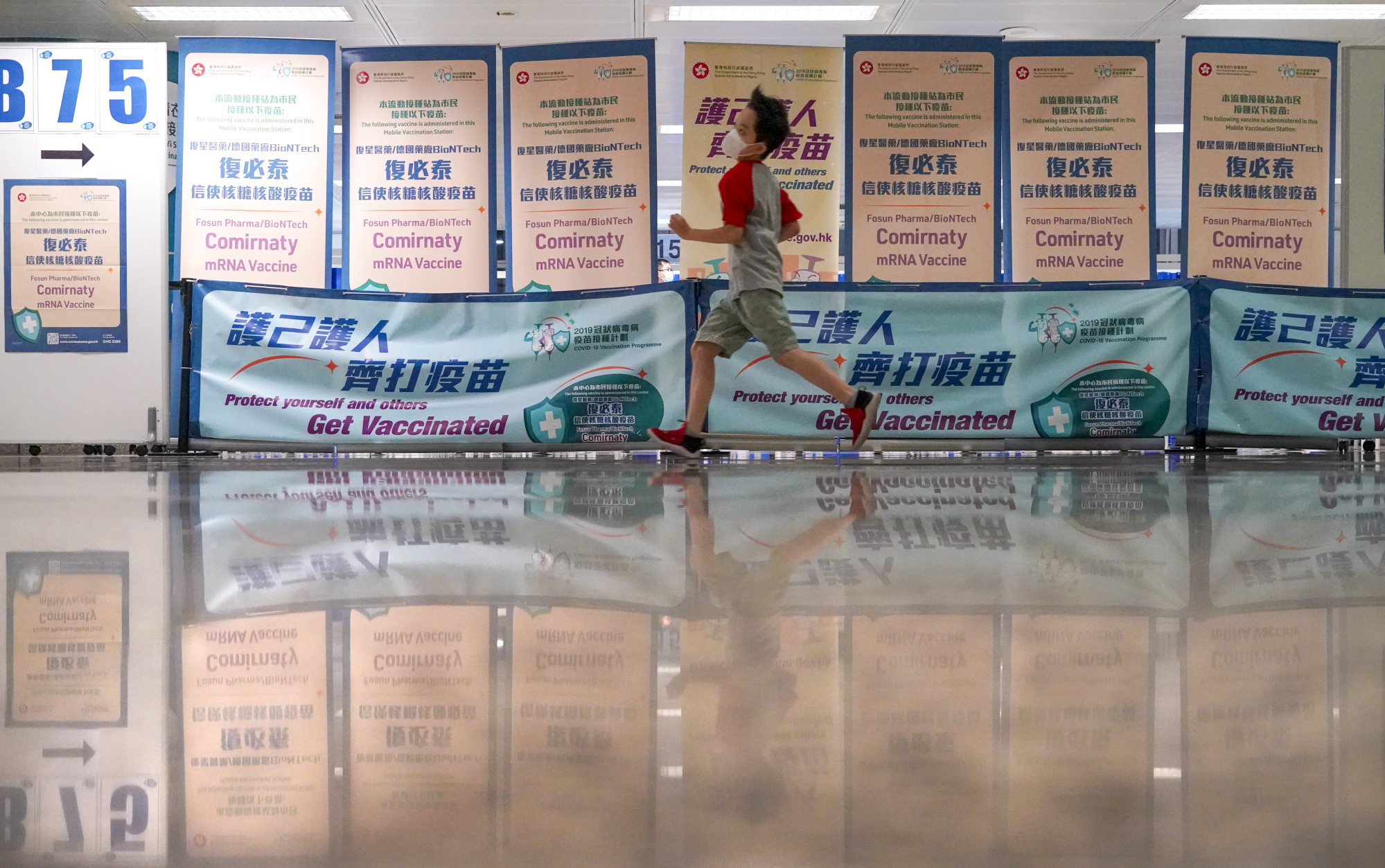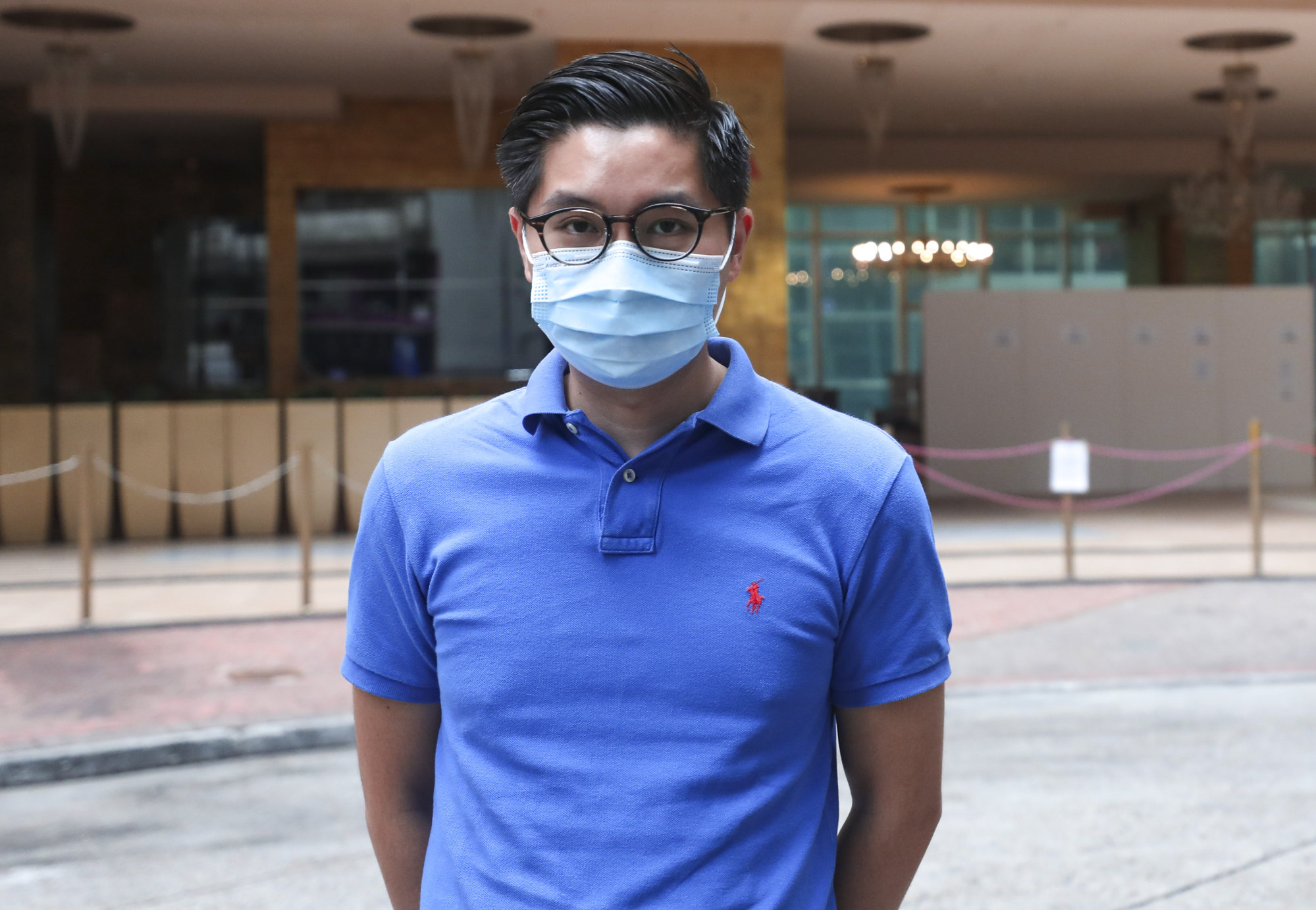
Coronavirus: Hong Kong approves BioNTech child vaccine for youngsters aged 6 months to 3 years
- Secretary for health approves use of vaccine for younger children as new XBB.1 coronavirus variant detected in city for first time
- Virologist Dr Gilman Siu from PolyU warns that travellers may bring in more new strains in winter under eased curbs.
Hong Kong has approved BioNTech’s Covid-19 vaccine for children aged six months to three years, with officials revealing talks with the drug maker on its supply have made “good progress” although no delivery time has been confirmed.
The development came as the Centre for Health Protection on Wednesday recorded five more cases of new Omicron subvariant XBB.1 – said to have the strongest ability to evade vaccine protection – after the first infection, involving a traveller, was reported on Monday.
Secretary for the Civil Service Ingrid Yeung Ho Poi-yan urged parents not to wait any longer if they planned on taking children on a Christmas trip, and a virologist warned travellers could bring in more new strains in winter under eased border curbs.
Yeung, who is in charge of the city’s vaccination campaign, said: “If we bring children for travel, we should give them enough protection, as it will be more complicated if they get infected abroad, such as language difficulties and unfamiliarity with the medical systems there.”
She noted that for adequate two-dose protection before the Christmas peak travel season, parents would need to arrange the first jab for their children in mid-November.
The Post first revealed Fosun Pharma, the local agent distributing BioNTech’s vaccine, had submitted an application for emergency use of the child vaccine in late September.
A government spokesman announced on Wednesday that Secretary for Health Lo Chung-mau had given the green light for the vaccine’s use for younger children, taking into account an earlier recommendation from advisers on the Department of Health’s joint scientific committees.

“The discussion between the government and the relevant vaccine manufacturer is progressing well. We are waiting for the vaccine manufacturer to provide the schedule and information on the supply of the paediatric and toddler vaccines,” the spokesman said.
BioNTech’s child vaccine contains one-tenth of the adult dose, which was said to be the safe and effective amount for that age group.
Government adviser Professor Lau Yu-lung earlier estimated the child vaccine could arrive in Hong Kong by October at the earliest.
But Yeung, who toured a vaccination centre on Wednesday, argued that parents should get their children vaccinated now with the Sinovac jab, noting it would take 1½ months to complete two doses and allow them to take full effect.
She said the winter season and potential new variants were reasons for parents to get their children inoculated.
Hong Kong on Wednesday confirmed 4,788 coronavirus infections, including 368 imported ones, as well as nine more related fatalities. The city’s tally now stands at 1,816,132 cases, with 10,246 fatalities.
Dr Gilman Siu Kit-hang, an associate professor of the department of health technology and informatics at Polytechnic University, said research had indicated that XBB.1 – which stemmed from a combination of Omicron strains BA.2.10 and BA.2.75 – was found to be more able to escape the effects of vaccination than other known variants, although inoculation could still prevent severe symptoms.
Hong Kong not ready yet to lift last Covid entry restrictions: John Lee
“Research from Peking University showed that it has the strongest ability to evade vaccines among variants at the moment,” he told a radio programme.
Siu said XBB.1 was first found in Singapore, and that Nepal and Bangladesh had also recorded cases.
He added it was difficult to predict if XBB.1, which accounts for about 1 per cent of global infections, would become the dominant strain in Hong Kong, as residents who opted to travel overseas under the “0+3” arrangement – no hotel quarantine for arrivals but three days of home medical surveillance with limited citywide movement – could bring back new variants from abroad.

Siu said he expected more mutant strains to emerge in winter and the number of infections to rise, and appealed to the health authorities to monitor the situation.
“This winter is the first winter since many places over the world returned to normal. Variants are expected to keep emerging,” he warned.
But he said patients infected with Omicron subvariants would have similar clinical responses with a low chance of developing severe symptoms unless an entirely new Covid-19 strain emerged.
Siu added the focus of measuring the pandemic’s severity should be on cases with severe conditions and strains spreading globally, rather than the number of confirmed infections and variants identified.
Hong Kong health advisers divided over buying BioNTech’s second-generation booster
Health officials on Monday reported the city’s first imported XBB.1 case, a 50-year-old woman who arrived on September 25 from the United States.
Chief Executive John Lee Ka-chiu on Tuesday also highlighted the arrival of new subvariants in the city as a factor when he cautioned against pushing ahead with the lifting of the three days of home medical surveillance for inbound travellers.
“Even though the current assessment is that the harm they may cause might not be bigger than the existing virus in our communities, we need to pay attention,” he said.
Hong Kong authorities to comply with ban on invalidating 20,000 jab exemptions
The High Court on Tuesday imposed a temporary ban on authorities from invalidating more than 20,000 Covid-19 vaccination exemption certificates issued by seven doctors alleged to have produced fraudulent documents after a resident asked for a judicial review.
The Health Bureau had earlier indicated the exemptions would be nullified from Wednesday.
Health authorities said they would comply with the court order.
Alex Lam Chi-yau, chairman of the non-profit Hong Kong Patients’ Voices, on Wednesday said some residents with the affected certificates had found it hard to get new ones as some doctors had refused to issue the documents.

